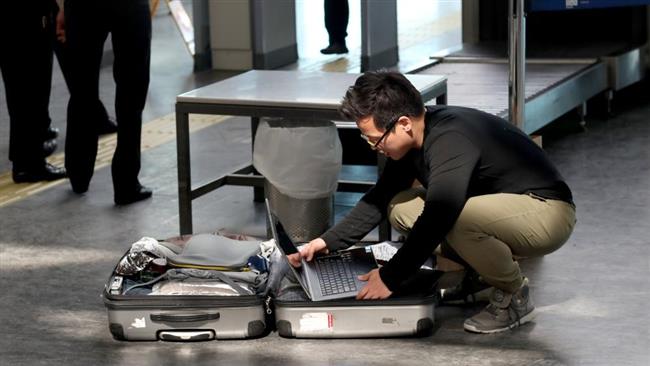Terrorist laptop bombs could evade airport security: US intel
Daesh (ISIL) and other terrorist groups have come up with ways to hide bombs in electronic devices and make them more difficult to be detected by airport security, US intelligence officials warn.
According to the FBI, terrorists have been testing their new bombs against airport security equipment they have obtained to increase their chances of evading security checkpoints and boarding the planes, CNN reported Friday.
The administration of US President Donald Trump’s decision to ban travelers flying out of 10 airports in eight Middle Eastern and African countries from carrying laptops and other large electronic devices was based on intelligence gathered over the past months, the report noted.
Earlier this month, the Department of Homeland Security (DHS) announced a ban on large electronic devices from cabin baggage in Jordan, Qatar, Kuwait, Morocco, the United Arab Emirates, Saudi Arabia, Turkey and Egypt.

The measure came after the department claimed that terrorists are seeking "innovative methods" to bring down passenger planes amid fears that bombs could be hidden in laptops, tablets, cameras, DVD players and electronic games.
Based on the FBI’s tests late last year, the new laptop bombs were far more difficult to discover by airport screeners.
Read More:
Instead of hiding the bombs in the battery compartment like in the past, the terrorist bomb-makers know how to hide the explosives while keeping the laptop functional long enough to get past screeners.
American intelligence agencies believe that al-Qaeda in Yemen has the highest level of bomb-making expertise and that the expertise might be spread among other terror groups.
Israel conducts multiple airstrikes across south Lebanon, violating ceasefire
Intl. NGOs warn Israel’s ban will impede critical humanitarian action in Gaza
VIDEO | Anniversary of Martyr General Hajj Qassem Soleimani
VIDEO | Iranians mark Gen. Soleimani martyrdom anniv. in Tehran
VIDEO | Austrian government party stoking anti-Muslim sentiment
VIDEO | Press TV's news headlines
VIDEO | Islamabad hosts conference honoring martyrs of resistance
VIDEO | Venezuela remembers General Qassem Soleimani










 This makes it easy to access the Press TV website
This makes it easy to access the Press TV website